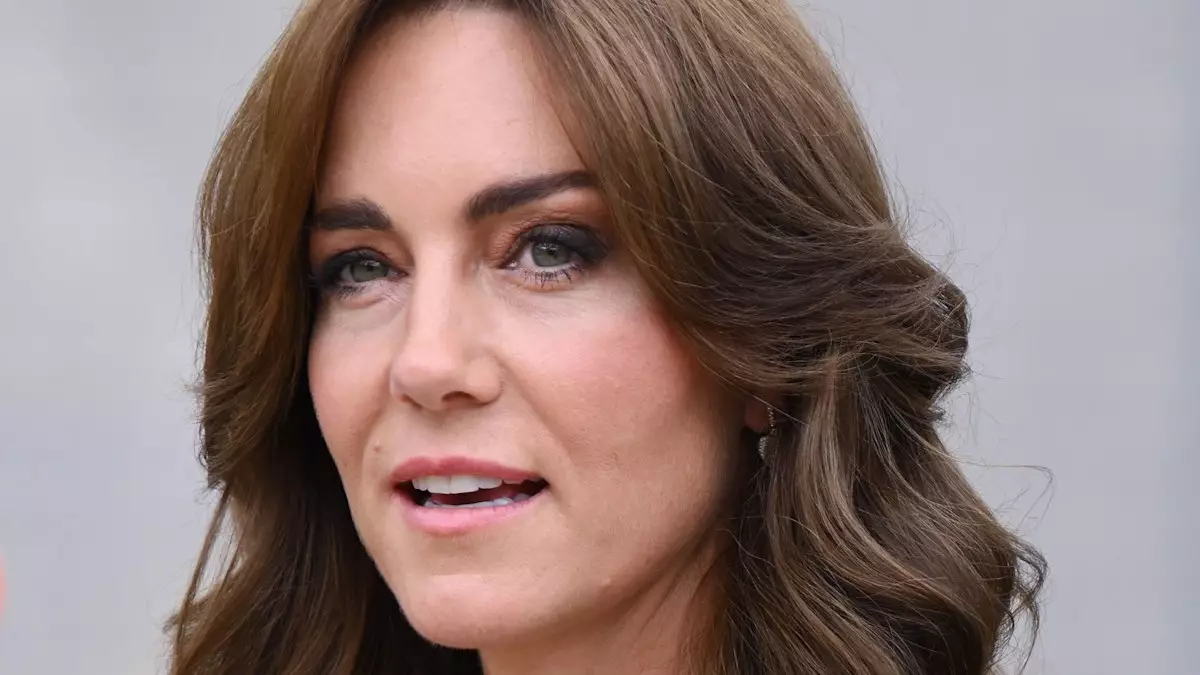Holocaust Memorial Day is a solemn occasion that resonates deeply within the community and beyond. The day serves not only as a reminder of the atrocities committed during the Holocaust but as a vital opportunity for collective reflection. On Monday, January 27, the Princess of Wales, Kate Middleton, and her husband, Prince William, attended a poignant reception at the Guildhall in London, marking the 80th anniversary of the liberation of Auschwitz. This significant day was highlighted by the presence of approximately 50 Holocaust survivors, each bearing the weight of unimaginable experiences.
The royal couple’s attendance underscores their commitment to remembering history and honoring the survivors, who embody resilience and strength. During this noteworthy event, Princess Kate experienced an emotional reunion with Yvonne Bernstein and Steven Frank, survivors she had previously photographed in 2020. Their exchange transcended mere formality; it was a powerful reminder of the human connections that persist through trauma and suffering.
The attire worn by Princess Kate on this significant occasion was not only stylish but also laden with meaning. Dressed in elegant black flares, a tailored black top, and a smart blazer, her fashion choice reflected a blend of sophistication and somber respect. Additionally, her hair was styled in loose, graceful curls, complemented by a natural makeup look that highlighted her features delicately.
Importantly, the jewelry she chose carried emotional significance. The layered pearl necklace paired with her Bahrain Pearl Drop earrings is a poignant homage to royal mourning traditions that date back over a century. Such traditions began with Queen Victoria, who adorned herself with pearls — symbols understood to represent tears — following the death of Prince Albert. In this way, Kate’s accessories served not merely as aesthetic choices but as a connection to the grieving of those lost and the memory of suffering endured.
As the event progressed inside the Great Hall, the atmosphere shifted to one of solemnity as survivors shared their harrowing testimonies. Prince William, donning a sharp navy suit, displayed a demeanor of gravity and respect as he expressed his honor in speaking at the event. His words illuminated the importance of remembrance, focusing not only on the six million Jewish lives tragically lost but also on the countless others who suffered under Nazi oppression. He described the survivors’ stories as powerful reminders of resilience and a commitment to ensure that such atrocities are never forgotten.
In his address, William conveyed profound sensitivity towards the trauma faced by the survivors, stating, “We also remember those survivors who have lived with scars, both mental and physical.” This acknowledgment of personal pain intertwines with public remembrance, creating a shared responsibility among all attendees to carry these stories forward into the future.
Historical Context and Personal Connections
This gathering was not Princess Kate’s first engagement with Holocaust remembrance. Having attended similar events in the past, her commitment to documenting the stories of survivors showcases a broader understanding of history and a dedication to highlighting individual narratives. Kate’s previous photography project at Kensington Palace, where she captured portraits of survivors, emphasized her belief in personal storytelling.
The sentiment she expressed in 2020 — that the “harrowing atrocities of the Holocaust… will forever lay heavy in our hearts” — speaks to the imperative of keeping these memories alive among newer generations. By sharing moments of joy and resilience found in individuals like Yvonne and Steven, Kate bridges the gap between past and present, illustrating that from unimaginable hardship, remarkable people can rise, shaping their lives and communities.
As we reflect on Holocaust Memorial Day, it is essential to celebrate not only the lives lost but also the valiant spirits of survivors who stand as testaments to human endurance. The efforts of figures like the Princess of Wales and Prince William play a crucial role in fostering a culture of remembrance. Through their compassion and commitment, they inspire others to honor the past while advocating for a future rooted in understanding and empathy. The memories shared within the Great Hall resonate beyond the day, reminding us that remembering history is a collective responsibility that requires dedication, compassion, and resilience.

